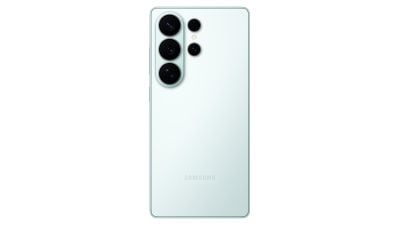PluggedIn: Music devices finding life beyond PC
With existing models such as Apple's iPhone and Haier's Ibiza Rhapsody to Palm's highly anticipated Pre phone audiophiles are able to find,download and play music wirelessly,without having to hook up to PCs.
Digital music players are freeing themselves,and consumers,from the shackles of the personal computer,thanks to devices that access music from what is called “the cloud.”
With existing models such as Apple Inc’s iPhone and Haier Group Co Ltd’s Ibiza Rhapsody to Palm Inc’s highly anticipated Pre phone,due in coming weeks,more and more audiophiles are able to find,download and play music wirelessly,without having to hook up to laptops or desktop computers.
Both of the first two devices can connect to online music services – iTunes for the iPhone (and iTouch),RealNetworks Inc’s Rhapsody for the Ibiza – that allows access to a large catalogue of songs and podcasts.
“You never have to use the PC as a conduit again,if the urge hits you,” said Neil Smith,vice president of business management for Rhapsody at Seattle-based RealNetworks,a pioneer in online media delivery.
When the Pre hits stores,users will be able to listen to web music discovery service Pandora,or spontaneously buy songs via Amazon.com Inc’s MP3 Music store.
Service providers and device manufacturers are betting that people will be willing to pay a premium for the ability to stream or download music on the spur of the moment,wherever they are. They are part of a growing industry of “cloud computing,” whereby data — music and other digital information — exists on remote systems,instantly accessible.
The iPhone debuted nearly two years ago,but one of the key elements of its launch was the inclusion of a portable version of iTunes,which gave users the ability to find and purchase songs on the devices.
Rhapsody,which still has less than a million users,has been around longer as a PC-based music subscription service,which gives those who pay a fixed monthly fee of $10 ($15 for the ability to download music to digital players) unlimited access to a catalogue of more than 6 million songs.
The Ibiza,made by Chinese consumer electronics maker Haier,incorporates Rhapsody software so that it essentially replicates the desktop experience.
It’s the increasing “cloud” integration between hardware,software and Web-based data,that has started to make products and services possible. Amazon’s Kindle,which wirelessly downloads e-books,is another example of such a combination.
Microsoft Corp’s Zune music player,which debuted as a rival to iPods,also has wireless capabilities,but the feature is mainly aimed at letting users share music — already downloaded or copied from a PC — with each other.
There’s also another category of in-home devices resembling radios or stereo components,meant to bypass PCs and access content directly from the Internet and deliver it from speakers or via an existing stereo system.
Mobile phone makers,especially Nokia,sensing the potential of the market,have been pushing to make their phones more music-friendly. Online music sites such as last.fm (last.fm/) and Pandora also offer software to make their content more accessible on mobile devices.
“It’s a huge period of realignment,” says Mark Mulligan of Forrester Research. “Connected devices will become a more important part of the equation.”
NOT QUITE THERE YET?
For Ibiza Rhapsody users,the software is more integrated,giving users the option of directly going to media stored on the device’s hard drive,or to a Rhapsody menu,which requires a Wi-Fi connection. From there,subscribers can stream songs or download them to the hard drive.
There are drawbacks,though.
In order to find specific artists,albums or songs,users have to use a cumbersome text input menu,and screen real estate is limited. The iPhone,with a touch-screen,offers easier input and more screen area.
Those problems will be addressed in the future,says Smith,as newer devices eliminate obstacles.
Moreover,Smith predicts that eventually,digital music players will just become folded into mobile phones,and wireless carriers will increasingly promote untethered access to music.
“It’s going to be phone,” Smith says,pointing to plethora of smarter mobile phones and increasing speeds of mobile data networks.
Forrester’s Mulligan says,however,that given the complexity of business models — the question of paying the content or network provider — and the length of time it takes for advances in mobile data speeds,a complete solution is still a ways off. Not to mention,battery life is always an issue for portable gadgets.
In other words: Don’t count the PC out yet.
“Absolutely,we will see more of this stuff happening,” said Mulligan,noting that at the moment,untethered access to music serves more of a complementary role. “But there’s still a strong fundamental role for the PC.”







